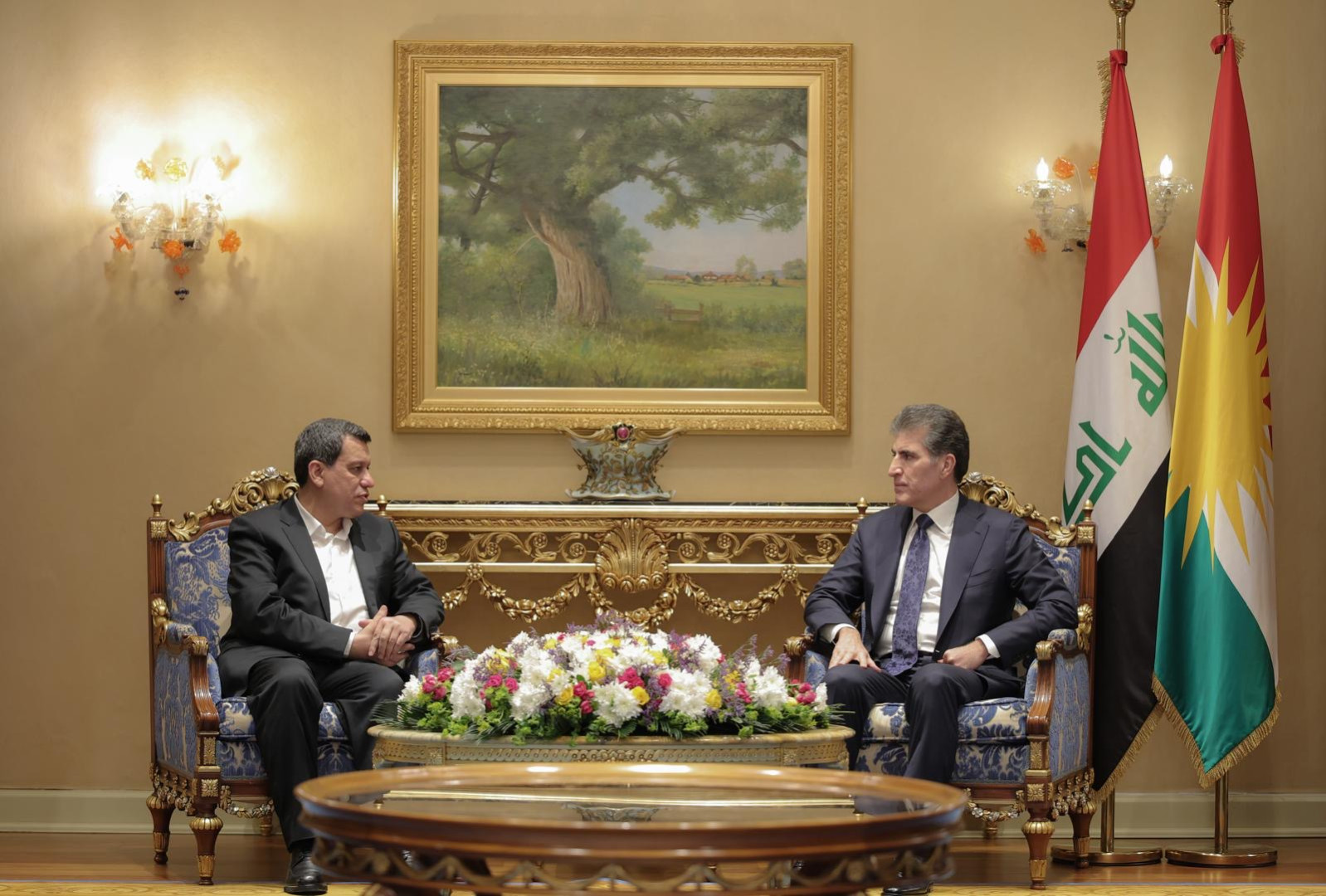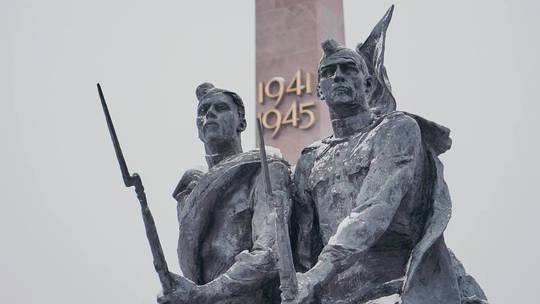Afghanistan and Pakistan agree ceasefire after trading their deadliest fire in years. Here’s what we know

Afghanistan and Pakistan said they had agreed a 48-hour ceasefire on Wednesday, following days of deadly clashes between the neighbors and former allies.
The fighting followed strikes in the Afghan capital Kabul and the border province of Paktika last Thursday – which the Taliban government blamed on Pakistan, though Islamabad has not officially acknowledged the attacks.
Both sides have confirmed a brief ceasefire that came into effect late afternoon local time.
Experts warn these latest attacks could signal a new era of instability for the neighbors, which have maintained steady and strategic relations for years despite frequent skirmishes along their disputed border.
Here’s what we know about the violence, which prompted calls to de-escalate from China, Russia, Saudi Arabia and Qatar, and an offer from US President Donald Trump to broker peace.
Sharpest escalation in years
The Taliban accused Pakistan of conducting an “unprecedented, violent and reprehensible” attack on targets in Kabul and Paktika on Thursday night last week.
While Islamabad hasn’t commented on the attacks, Lt. Gen Ahmed Sharif Chaudhry, a Pakistani military official, told a press briefing Friday there is “evidence” that “Afghanistan is being used as a base of operations for carrying out terrorism in Pakistan.”
Pakistan has faced a surge in Islamist violence since the Afghan Taliban swept Kabul in 2021. Islamabad has long accused Kabul of harboring the Pakistani Taliban militant group (known as the TTP), which its Afghan namesake denies.
On Saturday night, the Taliban launched what it said were retaliatory attacks against Pakistani forces in various areas near the border provinces of Kunar and Nangarhar.
Pakistan responded to the attack, which it called “unprovoked,” by conducting strikes and raids against Taliban camps in Afghanistan, according to a statement by the military, including what it said were terrorist training facilities and support networks.
Both countries claimed to have inflicted higher death tolls than their neighbor acknowledged.
Pakistan claimed to have killed more than 200 Taliban fighters and other militants, a figure far beyond the Taliban’s nine claimed losses. The Taliban, meanwhile, said it killed 58 Pakistani soldiers – more than double Pakistan’s 23 claimed losses – according to Zabihullah Mujahid, the Taliban’s chief spokesman.
CNN has not independently verified these death tolls.
Before the ceasefire came into effect, around 40 people were taken to a hospital in Kabul following explosions near the capital, according to Emergency, an NGO working in Afghanistan.
“They have shrapnel wounds, blunt force trauma and burns,” Emergency said in a statement. “Ten are in critical condition. Unfortunately, five people were already dead on arrival.” It did not say what the cause of the explosions was.
A Taliban spokesperson said the government “instructed all its forces to observe the ceasefire… as long as no one violates it.” Pakistan’s foreign ministry said “during this period, both sides will make sincere efforts to find a positive solution to this complex but solvable issue through constructive dialogue.”
Long and complicated history
Pakistan and Afghanistan have a long and complicated history marked by frequent clashes along their mountainous, 1,600-mile disputed border, known as the “Durand Line.”
Pakistan was one of the main backers of the Taliban after its ouster by NATO troops in 2001, and during its subsequent insurgency against the US-backed Afghan government.
The two countries are also big trading partners and share strong people-to-people ties. Pakistan has hosted millions of Afghan refugees over decades of war, though it has moved to expel many of them in recent years, citing the risk of terrorism.
But the TTP has re-emerged as one of Pakistan’s biggest national security threats, conducting 600 attacks against Pakistani forces in the past year, according to a recent report by the independent nonprofit Armed Conflict Location & Event Data (ACLED).
Following Saturday’s attacks, the Pakistan military said while Islamabad prefers diplomacy, it will “not tolerate the treacherous use of Afghan soil for terrorism against Pakistan.”
The India factor
Pakistan’s military noted that the “serious provocation” occurred during a recent visit by the Taliban’s foreign minister to India, Pakistan’s main regional rival, with which it fought a brief conflict earlier this year.
The Taliban and India made no secret of their closer ties on Friday when New Delhi said it would reopen an embassy in Kabul, calling Amir Khan Muttaqi’s visit “an important step in advancing our ties and affirming the enduring friendship” between the two countries.
Islamabad and New Delhi have “competed bloodily for influence in Afghanistan for decades,” Antoine Levesques, senior fellow for South and Central Asian defense, strategy and diplomacy at the International Institute for Strategic Studies, told CNN.
Pakistan has long viewed good relations with Afghanistan as key to counterbalancing India, which is why it continued to support the Taliban covertly when it was not in power despite outwardly supporting the US and NATO’s “War on Terror,” said Pearl Pandya, senior analyst for South Asia at ACLED.
“However, this calculation does not appear to have paid out,” Pandya said.
How have other countries reacted?
Qatar, Saudi Arabia, China and Russia all called for de-escalation.
Qatar expressed “concern” over “the potential repercussions for the security and stability of the region” in a statement to X. Saudi Arabia, which recently signed a defense pact with Pakistan, also called for “restraint and dialogue.”
The fighting also drew the attention of Trump, who offered to broker peace.
“I hear there’s a war now going on between Pakistan and Afghanistan,” Trump told reporters aboard Air Force One as he flew to Israel on Sunday to mark the Gaza ceasefire deal.
“I’m good at solving wars, I’m good at making peace,” Trump said.
What will this mean for relations moving forward?
While the violence has eased for now, with both countries signaling that they wish to de-escalate, the recent attacks could usher in a new era of instability for the neighbors.
“In the past, cyclical bouts of armed tensions typically have receded once both sides have made their point,” Levesques said, adding that Pakistan’s leadership views its country as a “stability provider for the region.”
Though Islamabad has not claimed direct responsibility for the explosions in Kabul, “such an attack would cross a red line in their relations,” Pandya said.
“In terms of the future of the relationship, a lot will depend on whether this escalation leads to a fundamental shift in how the Taliban deals with the TTP, which is really the main issue,” Pandya said.
[Source: CNN News]




















































